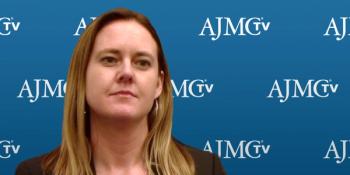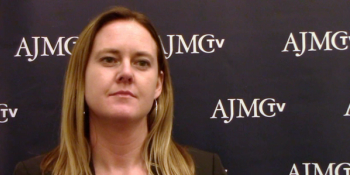
Rare Disease
Latest News
CME Content


Although each individual rare cancer affects a small percentage of patients, the collective group of 181 rare cancers is responsible for significant disease burden in the United States.

The FDA has expanded the approved uses of Kalydeco (ivacaftor), which is used to treat cystic fibrosis, so it can now be used by patients with any of 33 rare gene mutations.

A new paper in Orphanet Journal of Rare Diseases outlines a new pipeline for identifying opportunities to develop therapies for rare diseases that do not have treatments.

While global inequalities for survival of childhood leukemia have narrowed, the gap remains wide for acute lymphoblastic leukemia and acute myeloid leukemia, according to a study published in The Lancet Haematology. In some countries, the 5-year survival rate is nearly twice as high as in others for children diagnosed in 2005-2009.

The approval comes within months of avelumab being approved for the treatment of Merkel cell carcinoma.


The World Health Organization (WHO) has announced a pilot project that will take advantage of expected savings from biosimilar medications, particularly expensive anticancer agents, to make these treatments available for low- and middle-income countries.

Researchers have identified specific characteristics that can help identify responsiveness of patients with soft tissue sarcomas to immunotherapy.

Midostaurin (Rydapt) has been approved by the FDA, in combination with chemotherapy, for the treatment of adult patients newly diagnosed with acute myeloid leukemia (AML) with a mutation in the FLT3 gene.

Second primary malignant neoplasms (SPMs) are a well-known late effect after cancer, and a new study has found that they are more deadly among children and young adults than older adults.

The University of Connecticut has initiated recruitment for a phase I trial to test the safety and efficacy of OncoImmunome, a personalized vaccine designed to prevent relapse in patients diagnosed with Stage III or IV ovarian cancer.

Despite the wide variety of rare diseases out there, children and families living with rare disease have one thing in common: they experience diagnostic delays. A new study in Orphanet Journal of Rare Diseases described experiences of seeking and receiving a diagnosis of a rare disease and access to healthcare.

The approval comes following phase 2 results of 119 patients who participated in the IMvigor210 study.

The market for tardive dyskinesia, a movement disorder affecting 500,000 patients in the United States, will go from zero approved treatments to 2 in 2017, making it an important area to watch, said Aimee Tharaldson, PharmD, senior clinical consultant for emerging therapeutics at Express Scripts.

Exposure to tobacco smoke as a fetus or during early childhood can cause genetic changes that can increase a child’s risk of developing acute lymphoblastic leukemia (ALL).

Researchers developed a new framework that can predict long-term outcomes of different therapeutic options for Gaucher disease type 1.

In a reversal of previous policy, the FDA has announced it will allow the genetic testing company 23andMe to market its DNA tests directly to consumers.

A study presented at the annual meeting of the American Association for Cancer Research predicts a shift in the number and the pattern of cancer incidence among those infected with the human immunodeficiency virus (HIV).

Patients with chorea associated with Huntington’s disease have the first new treatment in nearly a decade. The FDA has approved Teva Pharmaceutical Industries Ltd’s Austedo (deutetrabenazine) for the treatment of chorea, which affects nearly 90% of patients with Huntington's.

The first drug to treat primary progressive multiple sclerosis and a new drug approved for atopic dermatitis are the 2017 approvals most exciting to Aimee Tharaldson, PharmD, of Express Scripts.

The Academy of Managed Care Pharmacy Annual Meeting kicked off on March 28, 2017, in Denver, Colorado, with a look at the specialty pharmaceutical pipeline with Aimee Tharaldson, PharmD, senior clinical consultant for emerging therapeutics at Express Scripts.

While the orphan drug market has been growing, a new study argues that the current unmet needs of patients with rare disease proves that current incentives are not efficiently stimulating orphan drug development.

Despite the abundance of new drugs that have been approved recently and the promising clinical trials of other novel therapies, multiple myeloma remains incurable, explained Shaji Kumar, MD, professor of medicine at the Mayo Clinic. However, he believes that with better options for early intervention and personalized therapies, researchers are on a path to curing the disease.

The first treatment for Merkel cell carcinoma, a rare form of skin cancer, has been approved to treat adults and pediatric patients 12 years or older. The drug is also under consideration through Priority Review for treatment of patients with urothelial carcinoma.





